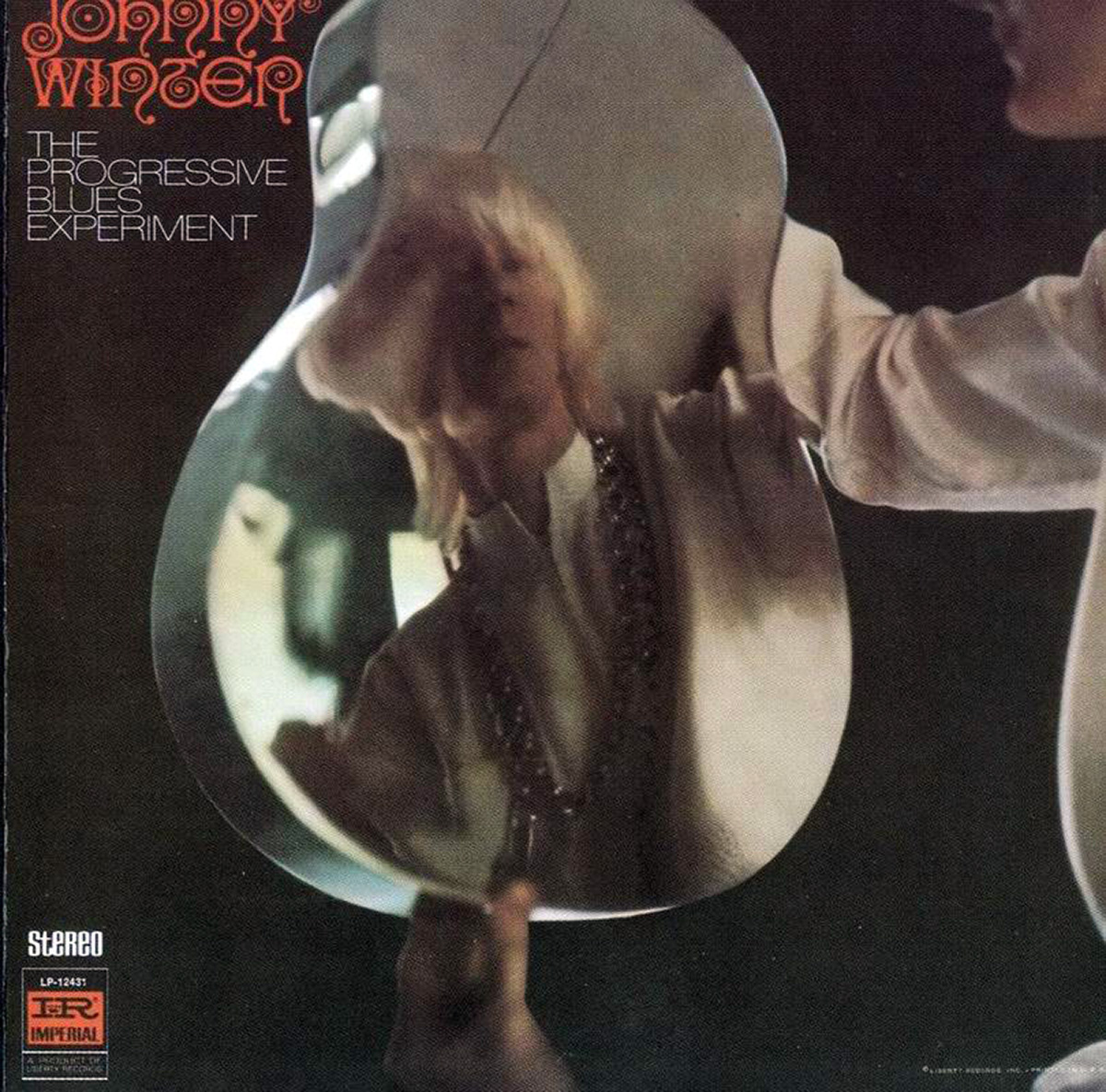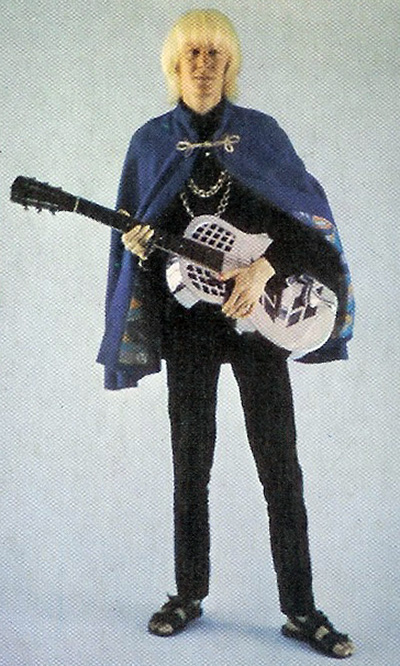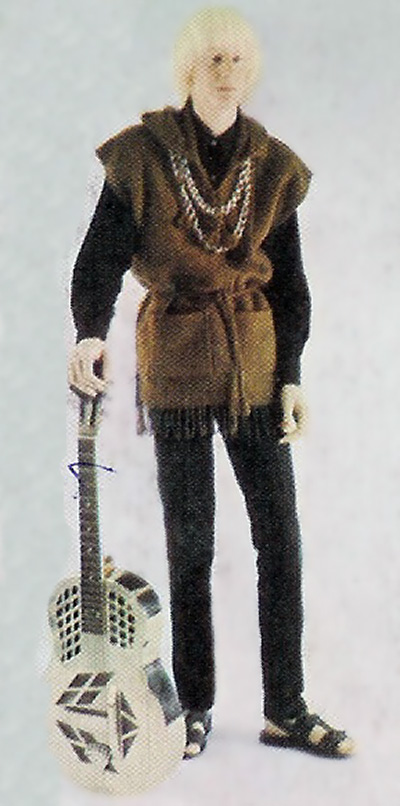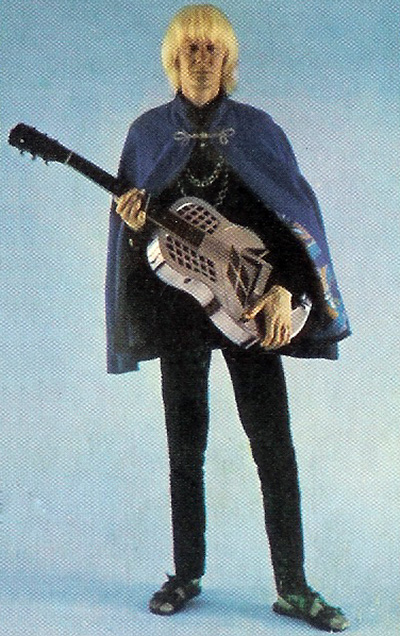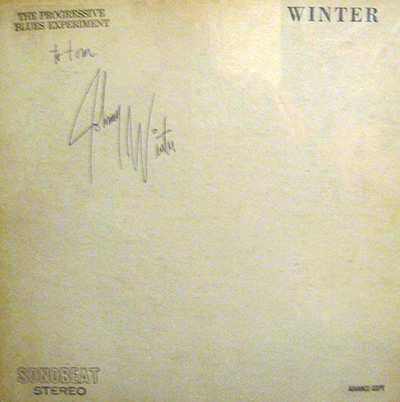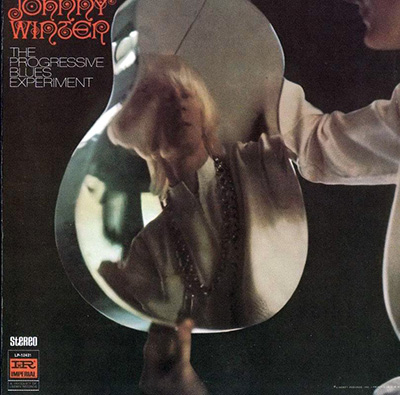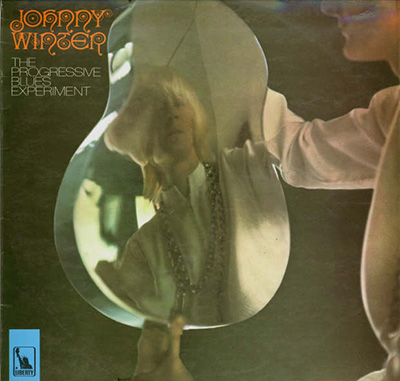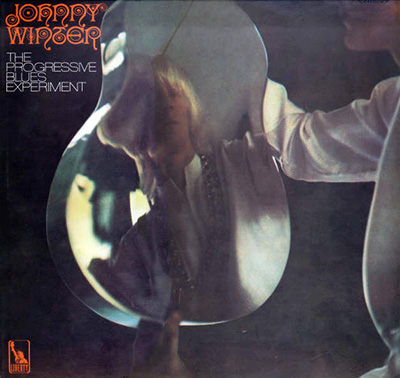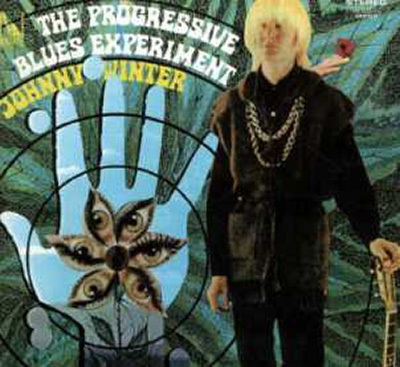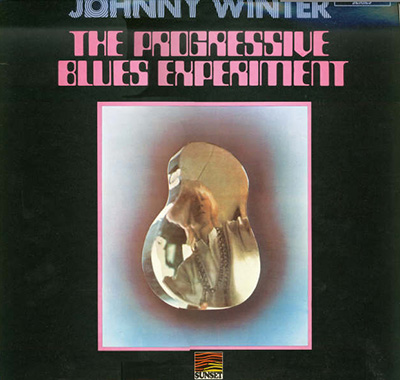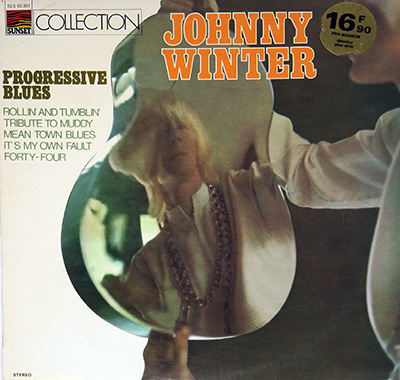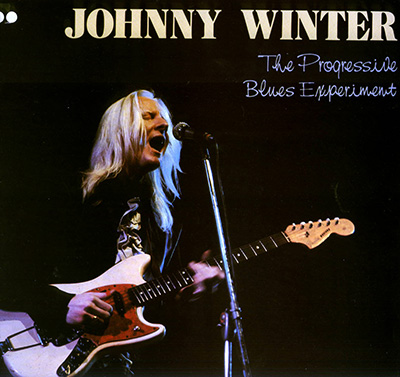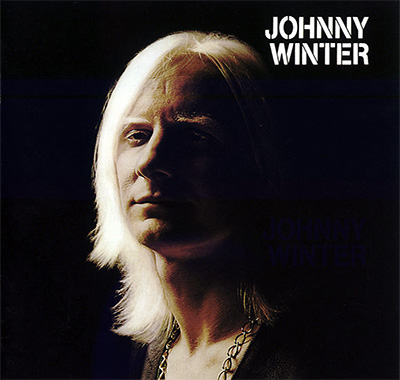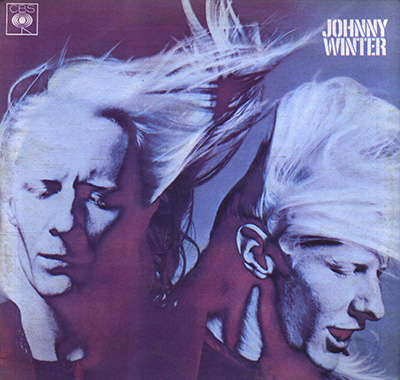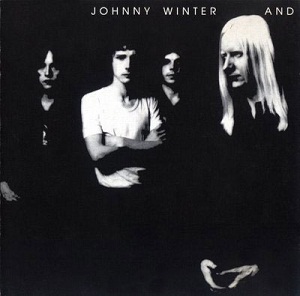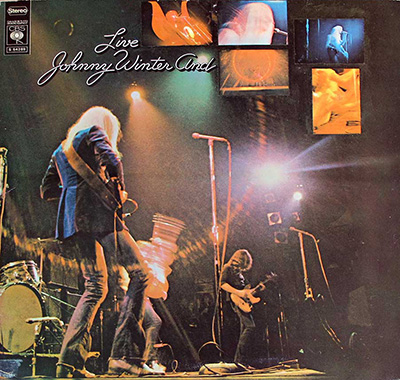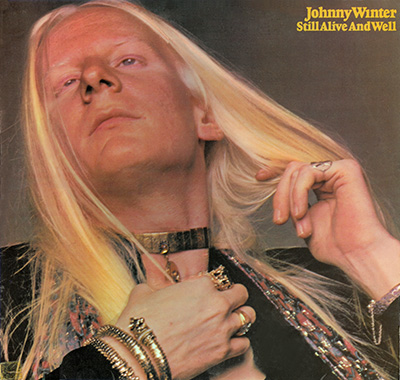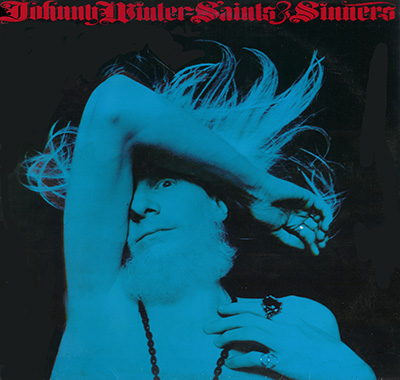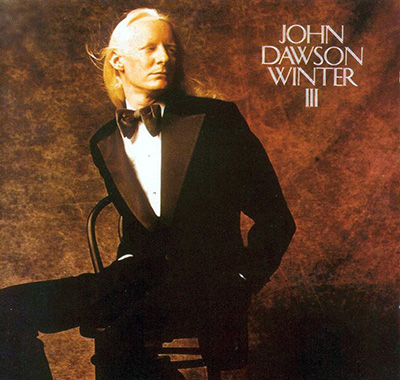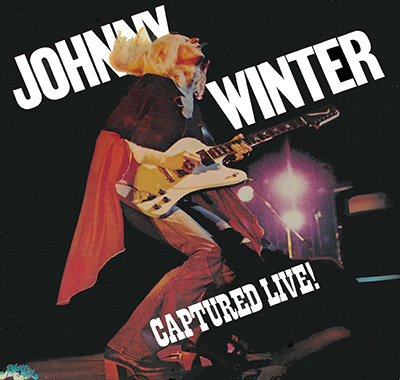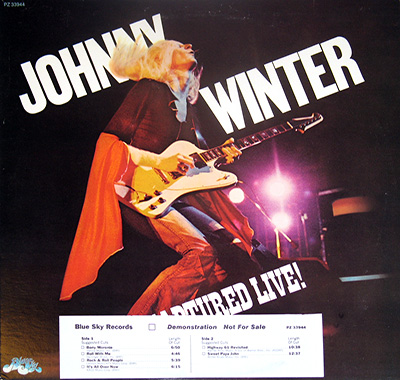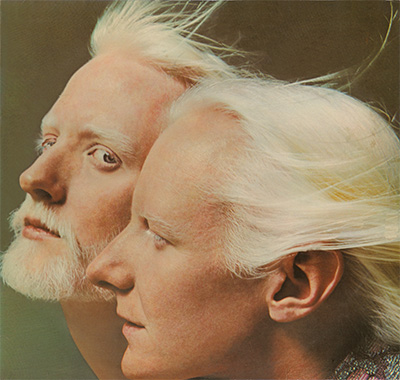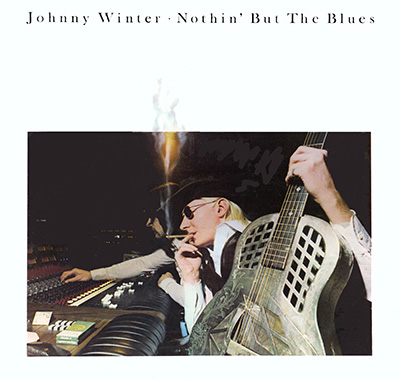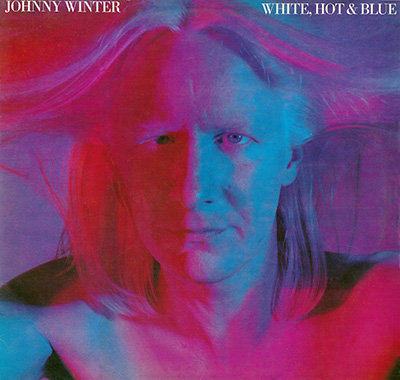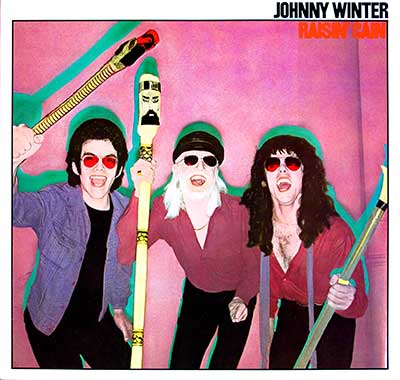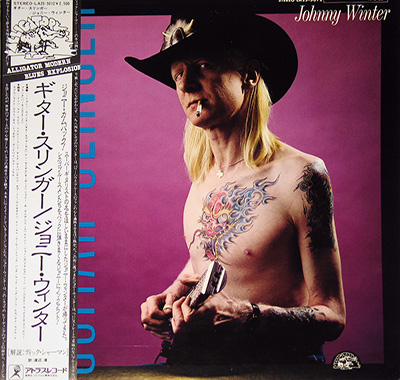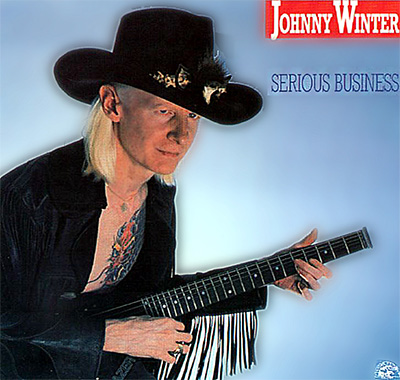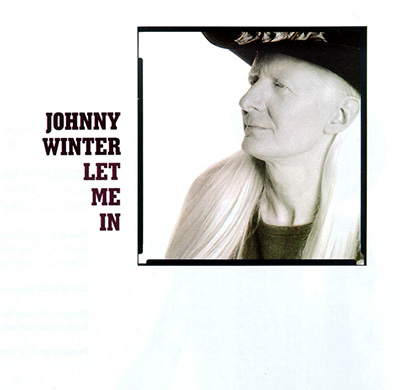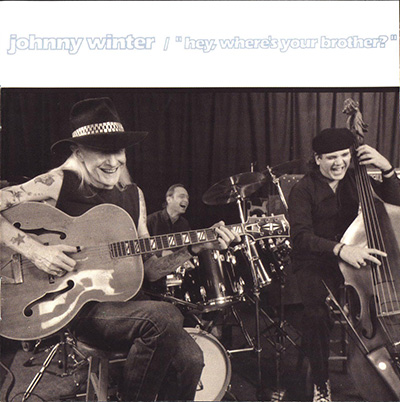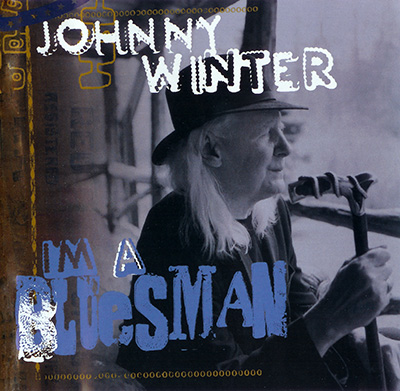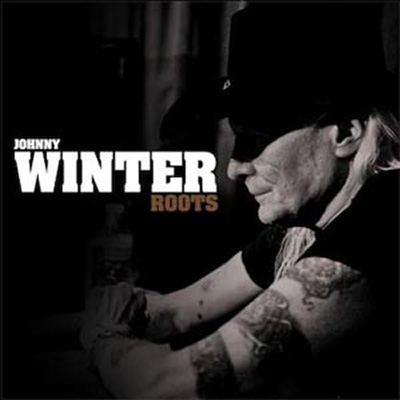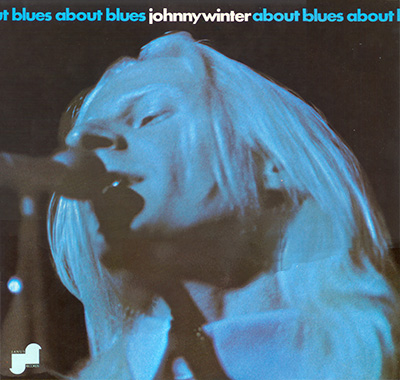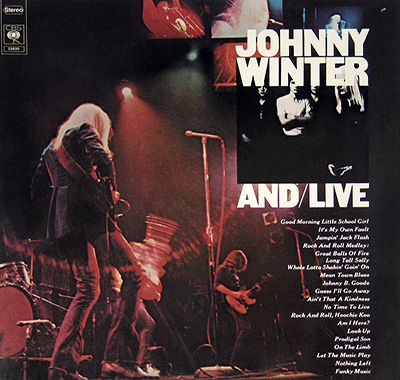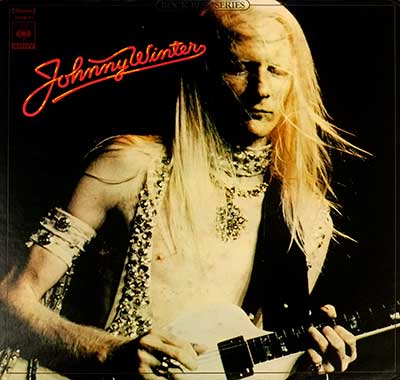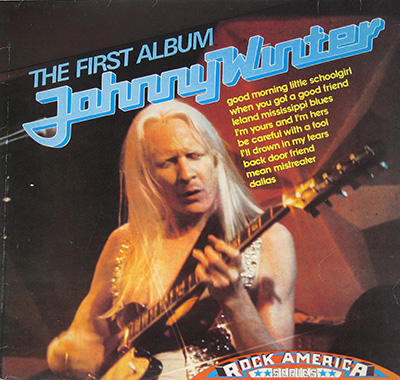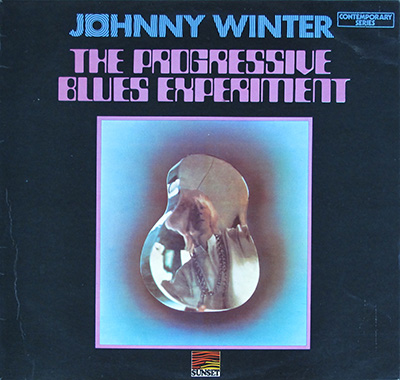A lengthy review of the "Progressive Blues Experiment" by Michael Joseph Heinrich
The transcript of this review
Today's column is by Michael Joseph Heinrich, a senior at Encinal High in Alameda. Readers are invited to submit reviews of pop albums to the column each week_ Those whose columns are published each receive a copy of a recently released stereo pop album. Address all correspondence to: "Guest Album," Teen Age, Oakland Tribune. P.O. Box 509, Oak-land, 94604.
Johnny Winter was once referred to as "the ultimate white bluesman" — he's an albino — but perhaps the statement is not without other motivation. Winter is an excellent performer; however, this Liberty re-release only hints at his talent. "The Progressive Blues Experiment" was recorded about a year ago in Austin, Texas.
The sound is hazy. the blend could be better, and Winter's two sidemen are just barely competent. Winter himself keeps his vocals well in control, with good phrasing for the most part, and his guitar work is impressive save for one fault: Winter may start a phrase on his guitar 'way up on the neck, playing little whining notes, then work all the way down to the bottom, then bang, suddenly he's right back up on top again. It's a very unnerving thing, one that gives a feeling of dis-continuity. Nonetheless, Winter is a masterful guitarist, and even in view of the poor acoustics of the LP, it's a good idea to pick up on it.
The set has good things, bad things, all kinda funny stuff, but they should be experienced as an essential part of the fabric of the blues. Examining individual cuts:
"Rollin' & Tumblin' " leads off the album; it's been done many times before, but it's , still fresh here, and the track establishes two things about the set: one, the similarity in atmosphere to a live performance, and two, Winter's ability to breathe new life into a song you've heard over and over. He plays a very solid slide guitar here, a style which can also emphasize percussion as well as chording. "Tribute to Muddy" is a retitled and slightly altered "Two Trains Running." another song we've all heard at least once.
It's done in a slow 6-8 time, with the beat just driving on and on. and Johnny's guitar shin-as usual. It's paradoxical, listening to Winter's style_ He's lifting riffs from all the blues before him, and you think, "Him, I've heard Eric Clap tan doing that... " while Clapton probably lifted it at the same time — he just got it on record first. Winter often sings in unison to his guitar lines; it certainly leaves no doubt as to who's playing guitar. "Got Love if You Want It" sounds like a Magic Sam song — good for dancing, fun to listen to. It leads into "Bad Luck & Trouble," a rural blues multi-tracked by Johnny on guitar, mandolin, and harmonica.
The effect is crowded, cluttered, like three individuals sitting around working out for their own pleasure. It doesn't make for the greatest music. "Help Me" is done surprisingly close to the way Cream might have done it. The guitar dominates the track, right to the end. Then the guitar work really comes across on "Mean Town Blues," Winter's strongest original in this set. The rhythm is heavily syncopated, pushing forward all the time — the break goes just about as far as possible playing straight slide style. "Broke Down Engine" is a hard-four blues with just Johnny and his righteous old National The mood is light, both in lyric (" . . . You're like a broke down engine, mama — ain't got no drivin' wheel . ") and in music: Winter constantly breaks tempo and meter to get in another line or two on his guitar before the lyric comes around, showing a rare lack of reliance on musical rules in the form of a crutch.
There's nothing that livens up a set like a good workout on "Dust My Broom" or the like, and "Black Cat Bone" backs that up beautifully. Winter plays his Elmore James thing meticulously, and the song rolls along — far too swiftly for my taste. "It's My Own Fault" is the slow blues of the set; more or less like any good slow blues, but here it's apparent more than any other place on the album that the band needs another guitarist to fill the gaps left by the guitarist's breaks: They sound awfully thin. "Forty-Four" starts out a lot like a Jimi Hendrix song, and the feeling sometimes peeps out throughout the cut. In view of all that went before it. the cut was a weak choice with which to close the album. that's Johnny Winter's first LP. It's refreshing, tiring, promising, exciting, and just a little down-homish, and if you think you can catch it better yourself at the Fillmore with your t w o -tr ack Sony, fine. The all-important thing is to hear Winter. He's well worth it now, and is probably getting. heavier every day.
